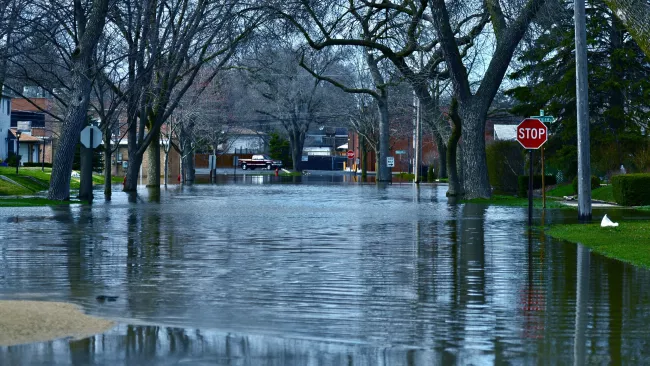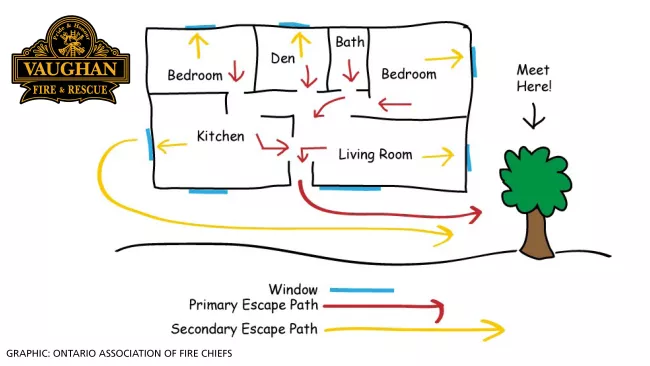What to do before, during and after a flood
Safety tips from Vaughan Fire and Rescue Service
We have experienced a number of heavy rainfalls this summer, which, unfortunately, can lead to basement flooding. Do you know what to do if this happens to your home?
Vaughan Fire and Rescue Service is providing tips to keep you and your family safe before, during and after a flood.
Preparing for a flood
- Monitor media coverage, the City's website and four corporate social media channels for updates: X, Facebook, Instagram and LinkedIn.
- Check your insurance policies to confirm what coverage you have for different types of flooding.
- Ensure your home’s sump pump is working and a backup pump is available.
- Create a family emergency plan (PDF) and an emergency kit.
- Have a back-water valve installed.
- Store important documents on the top level of your home.
- Ensure grading of the property slopes away from the walls of the home.
- Use water- and mold-resistant materials for renovations below ground level.
- Install a water alarm with a home security system.
- Clear catch basins of yard materials and debris, in the warmer months, and snow and ice in the winter months, if it’s safe to do so. This allows for proper drainage, which helps to prevent water from pooling and causing flooding.
During a flood
- If it is an emergency and your home is flooding, call 911. If you are safe, call Service Vaughan at 905-832-2281 to report flooding.
- Do not attempt to shut off the electricity if any water is present. Combining water and live electrical wires can be lethal. If your home is flooding, leave immediately and do not return until authorities indicate it is safe to do so.
- Move valuable belongings to the highest areas of the home.
- Apply water-tight sealant around window and door frames.
- Plug basement sewer drains and toilet connections with a wooden stopper, if safe to do so.
- Move hazardous substances, such as household cleaning chemicals, insecticides and pesticides, to upper areas of the home.
- Turn off electricity and natural gas if directed to do so by authorities.
- Use sandbags and flood barriers when asked to do so by authorities.
- Stay away from fast-flowing streams, rivers and areas known to flood.
- Check with Alectra Utilities Inc. that power has been turned off to your home – if it has not been turned off, have an electrician turn off the power.
- Do not drive through flooded streets and intersections. Turn around and find a safer route.
After a flood
- Once authorities have advised it is safe to return home, restore your home to good order as soon as possible to prevent further damage to the house and its contents.
- While cleaning, minimize contact with floodwater or anything that may have been in contact with it. Keep children away from contaminated areas during cleanup operations.
Re-entering the home or building
- Use extreme caution when returning to your home or building, and make sure the building is structurally safe. Look for buckled walls or floors and watch for holes in the floor, broken glass and other potentially dangerous debris.
- If the main power switch was not turned off prior to flooding, do not re-enter the home until a qualified electrician has determined it is safe to do so.
- Only use a flashlight to inspect for damage.
- Photograph all damage for insurance purposes.
- Dispose of all contaminated foods.
- Drain floodwaters in the basement slowly, one-third of the volume per day.
- The main electrical panel must be cleaned, dried and tested by a qualified electrician to ensure that it is safe – also, have the furnace and chimney inspected by an HVAC company.
- Appliances that may have been flooded pose a risk of shock or fire when turned on. Do not use any appliances, heating, pressure or sewage system until electrical components have been thoroughly cleaned, dried and inspected by a qualified electrician.
For more information and additional emergency planning tips, visit vaughan.ca/EmergencyPlanning.
For updates and news as they happen, subscribe to Vaughan News and follow the official corporate channels on X, Facebook, Instagram and LinkedIn.





